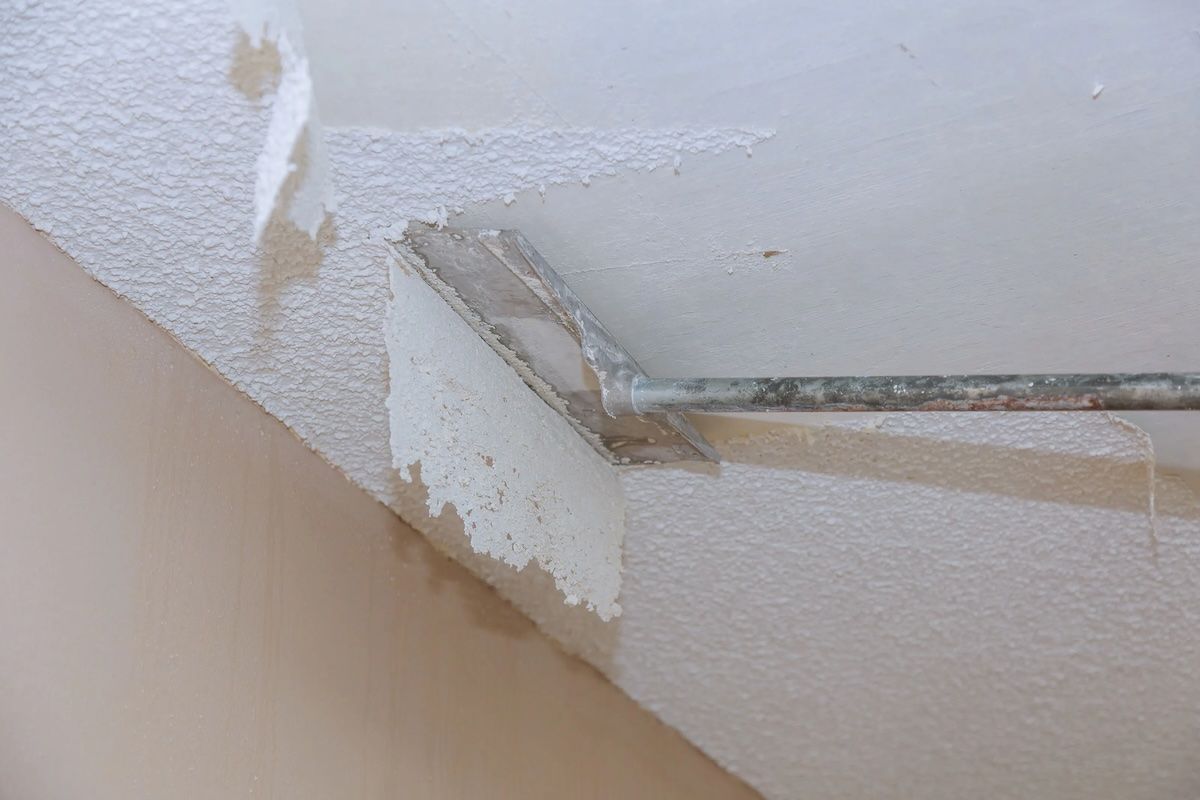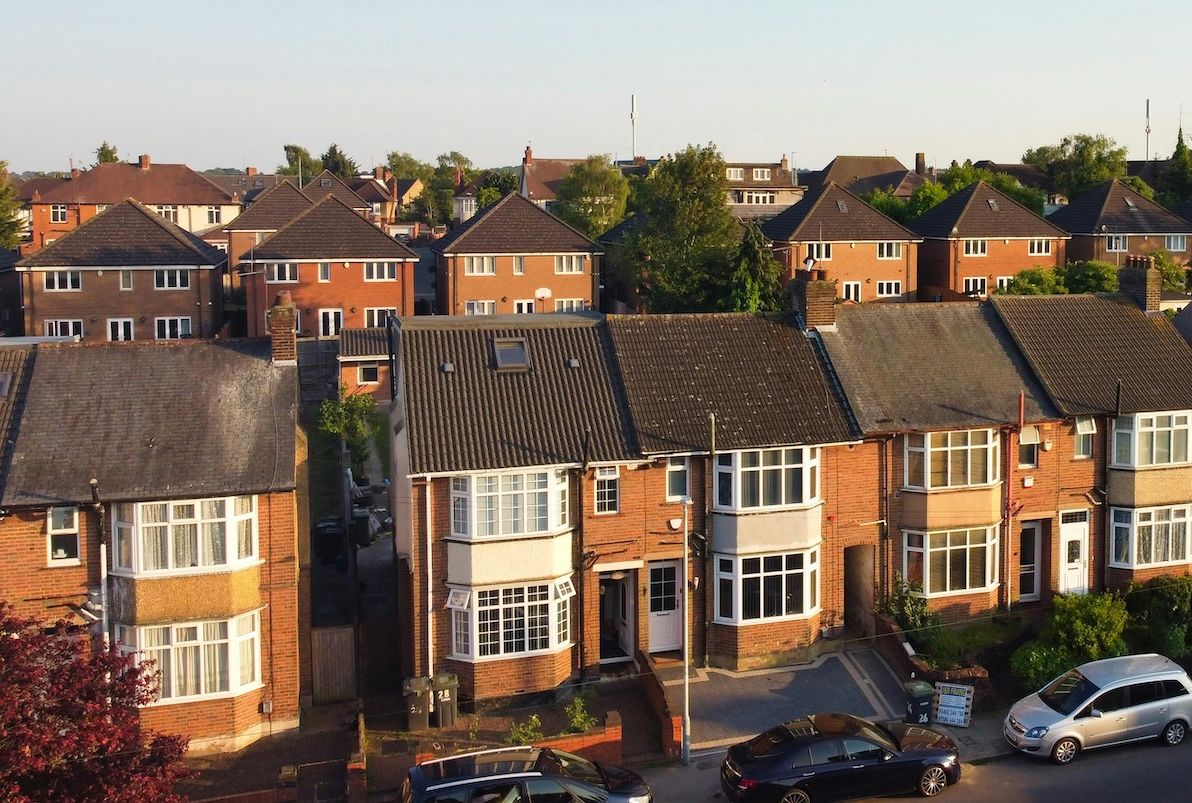- Do solar panels increase home value?
- Pros of selling a home with solar panels
- Cons of selling a home with solar panels
- Tax benefits for houses with solar panels
- Problems that can arise when selling a home with solar panels
- What options do sellers have for selling a home with solar panels?
- Sell your solar-powered home with one of FastExpert’s top agents
Is It Hard to Sell a House With Solar Panels?
Selling a home with solar panels differs slightly from selling a traditional home. While the benefits of buying a solar-paneled home are widely accepted and understood, purchasing a home with solar panels isn’t always straightforward.
Solar panels generally make a home more energy efficient. Given the amount of environmentally conscious buyers on the market, energy-efficient homes sell 20% faster and for 17% more than homes without solar panels installed.
Despite these advantages, selling a property with solar panels can also be challenging. Abnormalities in the local housing market and unfavorable financing conditions can complicate the transfer of ownership and affect the perceived value of a solar-paneled home.
In this article, we’ll discuss everything you need to know about selling a home with solar panels, including the benefits and downsides, whether or not they increase home values (and different scenarios), and options for selling a house with solar panels.
Do solar panels increase home value?
Solar panels increase home values mainly through energy savings. A study by the Lawrence Berkeley National Laboratory reports that for each kilowatt of solar power installed, solar panels can increase a home’s resale value by up to $5,911.
Considering this ratio, a home solar system that is 4kW big could increase a home’s value by $23,644, while a 10kW system could increase property value by up to $59,110.
Installing solar panels is a considerable investment. Although the average cost of solar panel installation has gone down significantly over the last ten years, it still costs about $20,650 to install. It’s worth assessing your ROI before moving forward with a solar panel installation.
While solar panels can potentially increase homes, it’s not necessarily guaranteed. Your target buyer and the way the solar panels are paid for will ultimately determine whether or not solar panels will benefit you as a seller. Consider the pros and cons of selling a home with solar panels below:
Pros of selling a home with solar panels
Buyers are interested in purchasing a home with solar panels for several reasons.
Here are four major selling points homeowners should emphasize to prospective buyers when selling a solar-paneled home:
Reduced energy bills
The national average for the price of electricity is about 16.6 cents per kWh. Solar panels can bring down that price to about 8 cents per kWh, resulting in major energy savings every year.
As the price of grid electricity rises across the country, a home with functioning solar panels won’t be affected.
Reduced carbon footprint
Plenty of homebuyers nowadays are environmentally conscious and looking to engage with clean energy whenever possible.
As a renewable energy source, solar power makes homes who can harness it more competitive on the market.
Increased energy independence
Solar panels are attractive options for homebuyers interested in energy independence. The harvesting of solar power eliminates the need for grid electricity sourced from a power plant.
If the grid were ever to go down in the local area, it wouldn’t affect solar-paneled homes.
Increased property value
Buyers interested in selling the home at some point in the future will be happy to know that solar-paneled homes are likely to appreciate at a greater rate than traditional homes.
Median-valued homes with solar panels sell for about $9,274 more than comparable homes with no solar panels.
Cons of selling a home with solar panels
While the advantages of purchasing a home with solar panels are clear, there are some notable disadvantages to buying a solar-paneled home.
Selling a home with solar panels may be a deterrent for buyers who focus on the following aspects of a solar-paneled home:
Weather-dependent
The amount of solar energy that can be harvested on any given day is largely dependent on weather conditions.
Cloudy days reduce the amount of electricity you’re able to produce, so if you live in a particularly rainy or cloudy area, solar panels may not be worth the investment.
Expensive to maintain
Solar panel expenses don’t stop at installation; they require regular maintenance and cleaning to ensure optimal efficiency.
If you live in an area prone to extreme weather conditions, such as tornados, hurricanes, or hailstorms, maintaining a solar panel system can easily get expensive.
No energy harvesting at night
Another potential disadvantage to solar panels is that they can only harvest energy while the sun is out.
Days are shorter in the winter, which means you may not get the most out of your panels in the colder months.
Large battery banks
Since energy can’t be harvested consistently throughout the year, solar panels come with big battery banks that can store large amounts of electricity.
This can be inconvenient for homeowners with smaller houses since these battery banks take up a substantial amount of space.
Tax benefits for houses with solar panels
In addition to lower energy costs, selling a home with solar panels often comes with certain tax benefits. Most Americans are eligible to claim the Solar ITC as an incentive to go solar. The federal solar tax credit is a non-refundable credit that reduces federal income taxes by 30% for those who install solar energy systems.
As of now, the credit expires in 2024 for residential projects. In order to claim the full federal solar tax credit, you must have a high enough taxable income. However, there’s no income limit which means that you can claim the tax credit even if you make a lot of money.
The tax credit can only be applied to owned solar panels. This means that if the panels are leased or rented, the home owner is not eligible for the tax credit. Instead, the tax credit goes to the solar company providing the solar panels to the owner.
Differences between owned, financed, and leased solar panels
Whether or not a solar-paneled home will easily sell depends partially on how the solar panels were purchased. Solar panels are either owned, leased, or financed.
The best case scenario when selling a home with solar panels is for the seller to have complete ownership of the panels. The simplest way to achieve this is to purchase solar panels outright in a single transaction.
However, installing a brand-new solar system in a home can be costly. As a result, most homeowners either take out a loan to pay for the solar panels, rent them from a power plant, or lease them. This complicates the transfer of ownership at the time of sale. The seller would have to either buy out the panels in full or transfer payment obligation to the new owner.
This can cause some buyers to view a solar-paneled home as more of a burden than a benefit. Additionally, the solar panel lender involved in the transaction may not want to take on the new owner as a borrower.
As you can see, selling a home with solar panels is not always a seamless process. Take a look at how each form of solar panel ownership impacts the home selling process, below:
Solar loans
Solar loans are installment loans used to finance ownership of solar panels. Each solar company offers a different rate of interest, monthly payment, and loan term for its solar loans according to their credit and financial requirements.
Solar loans work similarly to personal loans in that the borrower agrees to pay back loans over a certain period of time, with interest. However, solar loans are also flexible. They usually require no money down and come with loan terms of 8-20 years, allowing borrowers to choose a monthly payment plan that works for them.
This allows you to design a loan with a monthly payment that you are comfortable with. There are two primary types of solar loans: secured and unsecured.
Secured solar loan: This type of solar loan uses your house as collateral and normally comes with a lower interest rate than an unsecured solar loan.
Unsecured loan: This type of loan uses the solar panels as collateral and allows the borrower to sell their home before clearing the loan.
Solar leases
Another option available to homeowners is to finance solar panels through a solar lease. Solar leases allow homeowners to curb the upfront costs of purchasing and installing a solar panel by offering smaller monthly payments over longer periods of time, usually 15-20 years.
However, it’s important for homeowners to remember that leased solar panels can significantly complicate home sales. Leased solar panels don’t add property value in the same way that purchased panels do. In fact, they have no statistical significance when assessing the impact on home prices.
Additionally, since the homeowner doesn’t actually own the panels, they receive no associated tax benefits. Instead, solar panel incentives are reserved for the solar company leasing the panels. Solar leases are good options for homeowners who don’t plan to sell their homes soon and don’t want to commit to a solar loan.
Power purchase agreements
Lastly, homeowners have the option to rent solar panels from a third-party developer of electricity through a power purchase agreement. In a PPA, a buyer purchases a certain amount of electricity from a seller at a pre-negotiated price. The homeowner and developer enter into a contract where the developer builds, maintains, and operates a renewable energy system on the customer’s property.
PPA agreements typically last 10-25 years and are good options for homeowners who are unable to purchase a solar system outright or are unwilling to take out an interest-bearing loan.
Problems that can arise when selling a home with solar panels
While clean energy and lower bills are strong selling points for any home, Some buyers may be unwilling to deal with the issues of purchasing a solar-paneled home.
Solar panels that are not owned by the homeowner are subject to third-party regulations, which means that the home sale process may involve additional credit checks, title issues, and property liens.
As a result, selling a home with solar panels is often more complicated than a traditional home. When selling a home with a solar lease, buyers may encounter the following issues:
- The warranty is non-transferable.
- The solar panels are in poor condition or undervalued.
- The seller has to pay an early termination fee if you want to transfer ownership.
- The buyer doesn’t meet credit requirements set by the third-party solar installer.
What options do sellers have for selling a home with solar panels?
It may seem like selling a home with solar panels is impossible but don’t get discouraged. Sellers have a few selling options available when selling homes with leased, rented, or financed solar panels.
Selling a house with a solar panel loan
When you take out a solar panel loan, the solar company places a lien on your property title until the loan is paid off. In order to sell a home with a solar loan still active, you’d have to pay off the solar loan either at or before closing. Buying yourself out of a solar loan may not be a problem if you’ve paid most of your balance off.
However, if you have a considerable amount left to pay off, you may need to sacrifice some of the profits from your home sale at closing. In most cases, mortgage companies are not fond of buyers taking on additional financial responsibilities immediately after or at the same time they purchase a new home.
Selling a home with a solar lease, or power purchase agreement (PPA)
Homeowners opt for solar leases or power purchase agreements to curb the upfront costs of installing a brand-new solar panel system. Both arrangements allow homeowners to generate solar power at a cheaper rate than if they were to own and maintain their own solar panels. The trade-off is that the solar panels are owned by a third party.
If you want to sell your home before the end of your lease or PPA term, you and the buyer must agree on how to handle the future of the solar agreement. These options vary from one agreement to another, but often include the following three possibilities:
Purchase: Solar panels are purchased by the seller at a price specified by the third party, eliminating the need for the buyer to be responsible for them. Purchasing the panels can also increase the home’s value.
Prepayment: Solar panels are prepaid by the seller for the remaining contract amount, making the buyer responsible for everything under the contract except the payment.
Assignment or assumption of contract: Solar panel payments and all responsibilities listed in the solar agreement are assumed by the buyer.
Sell your solar-powered home with one of FastExpert’s top agents
Selling a house with solar panels can be both a challenging and an advantage. While solar panels can significantly enhance energy efficiency within a home, they can also complicate the home selling process.
Whether or not selling a home with solar panels will be easy depends mostly on how the solar panels are financed and the conditions of the local housing market.
It’s in your best interest to discuss your options with a qualified real estate agent who has tangible experience selling homes with solar panels.
Consult with one of the top real estate agents in your area today to learn more about which home sale method works best for your property.





